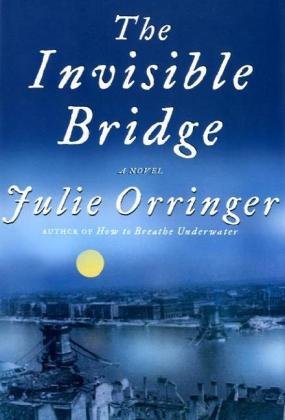The Invisible Bridge
Paris in 1937 is only a dream place for Hungarian Andras Levi, an aspiring architect, until news of a scholarship from the city’s École Spéciale reaches him. His last evening home is spent at the opera with his devoted brother, Tibor, where a bank manager’s wife asks him to take a box to her son, Josèf. Andras goes to tea to collect the box as well as a secret letter from the family matriarch, insisting he post it safely from Paris.
During his long train journey across several frontiers, Andras notices the threatening presence of the German Nazis and refuses to buy anything in their country, even though he is starving. Further threats to his future arrive via soon-to-be-canceled scholarships for Hungarian Jews, forcing Andras to find employment to continue his studies. At the Sarah Bernhardt Theatre, he meets other Hungarians but none as devastating as Klara, an older woman of the world who becomes his first lover and his obsession. (And the actual recipient of the “secret letter” he mailed upon arrival in Paris.)
As Hitler’s influence reaches France and factions are formed to root out the Jews, encroaching danger surrounds Andras and his fellow Jewish classmates. Eventually returning to Hungary, Andras is suddenly drafted into a labor camp and surreptitiously joins a friend in publishing underground newsletters against the Nazi regime. Punishment follows, and, grippingly, the story builds up to the atrocities of Hitler’s Final Solution.
As ambitious as this first novel appears, it never fails to hold the reader, straight through from the innocent beginnings of being young and in love in Paris to the horrifying effects of genocide and hatred that became known as the Holocaust. Told from the rare point of view of Hungarian Jews, it is a compelling read, beautifully written and highly recommended.










